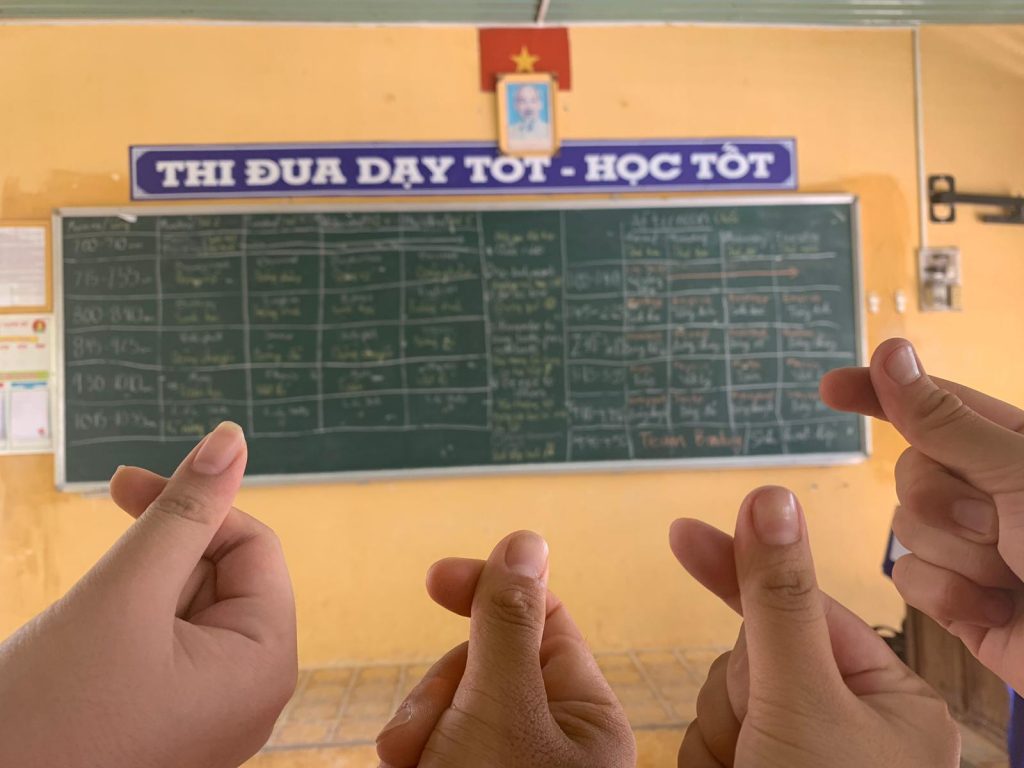
Xin Chao! Or, hello, in Vietnamese. Despite our best efforts, Vietnamese is a very complicated language, and even after a whole week of being immersed in it, “xin chao” and “tốt lắm” (good job) still make up 25% of our vocabulary.
Going into ACE, there was really no way to prepare for communicating with children who know very little English. The first day of camp was a little overwhelming, but we quickly learned the importance of non-verbal communication. Smiles, high-fives, thumbs up, silly faces, and dance parties took the place of words, and we used pure energy and enthusiasm to form bonds and relationships.

As the week went on and the team of American and Vietnamese coaches fell into a rhythm, it now feels like we are actually teaching the kids. The invisible wall that was there at the beginning of the week has fallen, largely due to our fantastic Vietnamese partners and their ability to adapt to our teaching styles and do a million things at once (translate both ways, teach, learn American sports, and still form relationships with the kids).
“As the week went on and the team of American and Vietnamese coaches fell into a rhythm, it now feels like we are actually teaching the kids.”
Not to mention that on the sports field, words are no longer necessary. Demonstrations, fist pumps, yells of celebration, and piggy-back rides are enough to let the kids know we want to be there and love playing with them.
We’ve found that actions really do speak louder than words. Cảm ơn (thank you) Vietnam!
Some phrases we try to use while at camp:
Xin chào = Hello
Cảm ơn = Thank you
Xin lỗi = Sorry
Chị/Anh tên là = My name is…. (female/male)
Một, hai, ba… = One, two, three
Bắtđầu = Go
Sẵn sàng chưa? = Ready?
Xong chưa? = Finished?
Cố lên = Cheering (the other 75% of our vocabulary)
Làm đi = Do it
Nhanh lên = Hurry up
Tốt lắm = Good Job
Đung rồi = Correct
Im lặng = Be silent
Nghe nè = Listen up
Tập trung = Gather
Chú ý = Focus
Vui không? = Are you having fun?
Không có chi = You’re welcome
Hiểukhông? = Do you understand?
Chôm chôm = Rambutan, aka the most delicious fruit on the face of the earth

Awesome article. I especially like the communication skills learned both on and off the fields. Thanks for the Vietnamese translations.